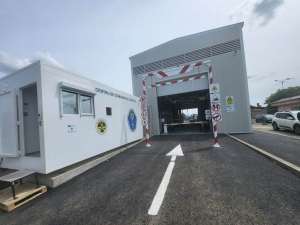Ioana Popa
Romania"s president Traian Băsescu was extremely adamant at the end of last week on the issue of the IMF agreement. He said: "Right now Romania doesn"t have any problems, it is not taking on loans because it is in trouble. The debt of the Romanian state is only 1.6 billion Euros this year. Our issue is the private debt".
The country"s president said that the Romanian state will not grant one single Euro to any company: "No one should expect any company will receive even one single Euro from the Romanian State. What the Romanian State has to do, however, is to stop being the one gathering all the money on the market, because we have the obligation to create conditions for companies to recover the money they have to pay, from the market, since the state budget keeps covering the budget deficit from the domestic market. Yes, that 2% deficit will probably reach 3%. Essentially there is no money left on the table for the economy. And our goal is not to make State the main buyer of money, whether we"re talking Euros or lei. We need to leave liquidity in the market. For this reason we are taking money from the IMF or we are at least considering it in order to consolidate the forex reserves of the National Bank, and on the other hand we will be taking money from the European Commission so that minister Pogea will no longer be the one that"s gathering all the money in the market, while companies are forced to borrow money at extremely high interest rates, or under difficult terms, or sometimes they can"t get any funding at all, because the market is lacking liquidity".
The president said that his duty as head of state, in the relationship with the IMF, is to determine what"s feasible and what"s not. "Which is what I"ve been doing since the beginning of the mission. Other issues, such as raising the VAT or changing the flat income tax, are out of my hands and into the government"s. It has been decided from the get-go that these things can"t be done", Traian Băsescu said.
• Băsescu: We will decide in the upcoming period if we"re going to take on a foreign loan or not
Romania"s president said that Romania will decide in the upcoming period whether to take on a loan or not, after completing the negotiations with the IMF. Traian Băsescu said: "The report of the IMF has been finalized, the form of the letter proposed by the IMF is now going to be discussed by the Government, along with a draft mandate that I will have to validate according to the protocol, and then the Central Bank and the Ministry of Finance will begin the negotiation. We will have to see what the outcome of this negotiation will be and how we can harmonize the interests of Romania, of the European Union and of the IMF, on one hand, and on the other hand we will need to be extremely mindful of our objectives, which include modernization of the state, modernization of Romania"s pension system, of the tax system and most importantly the convergence program to allow Romania to join the Euro in 2014".
• Băsescu: Domestic subsidiaries of EU banks should not have their operations restricted by mother banks
Traian Băsescu said that the final document of the European Council"s reunion has a specific reference to the fact that subsidiaries of the EU must not have their activities restricted by their mother-banks, and he said that this is a compromise formula. He explained: "I can tell you that we succeeded in adding a clause stating that subsidiaries of EU banks must not have their operations restricted by their mother banks - sure, we would have liked a stronger wording, but this is a compromise that has been reached as a result of the discussions that we had with the heads of state and governments. We would have wanted a clearer wording - or a recommendation -that mother-banks not would not be allowed to repatriate their funds from the markets where they invested through their branches located in EU member states. This strong wording was not accepted ".
President Băsescu insisted on reading to the press the exact wording in the document: "Concerning the banking sector, support granted to the mother-banks should not involve restrictions on the activity of branches from the host country which is a member of the EU ". "Thus, the countries funded their mother-banks, but they in turn must not drain their resources from their subsidiaries in other EU member states. This was the compromise that we managed to come to. The material is far more complex", Băsescu added.
President Băsescu said, that on the debate of the financial and economic crisis, he was extremely "adamant" that until banks don"t clean up their toxic assets - "or toxic loans, as they are called "-, injecting state money into the banking system won"t be the most efficient system. "In support of this solution, we have told them that the same thing happened in Romania in the 90s, when the state capitalized the banks twice, but the banking system only recovered when the bad assets of the Agricultural Bank and Bancorex were cleaned up - I"m sure you remember the whole story", Traian Băsescu said.
• The global monitoring system, much more vigilant when it comes to financial institutions, as well as rating agencies
The European Union stands behind its commitment to support any member state that needs financial support, during this period, and for this purpose it has decided to supplement the aid fund available to the European Commission by another 25 billion, and also, for the countries that may need it, the Union will contribute another 75 billion Euros in order to increase the capital available to the International Monetary Fund. Another extremely important issue was that of the surveillance of the world"s financial system, as well as the need to monitor rating agencies, in order to uncover conflicts of interest, when issuing ratings for banks, countries and so on.




























































